Behavioral Studies
These studies involve participants listening to sounds and making responses. They help us better understand the processes that enable listeners to accurately follow conversations, especially in noisy listening environments, and how those processes change with age.
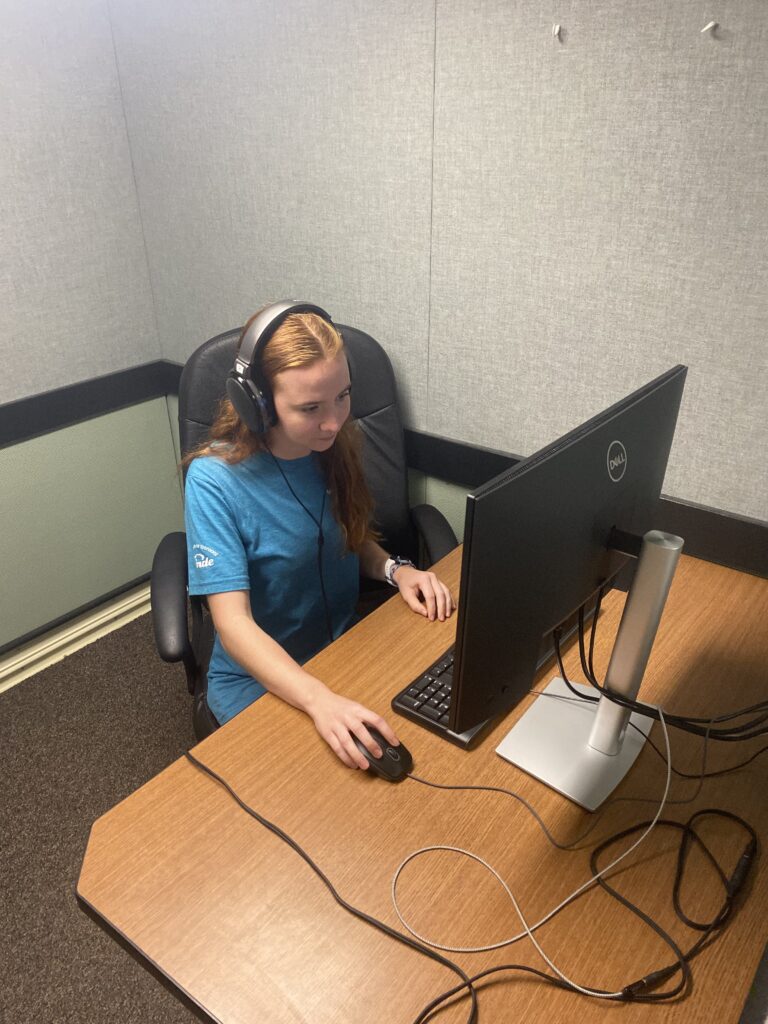
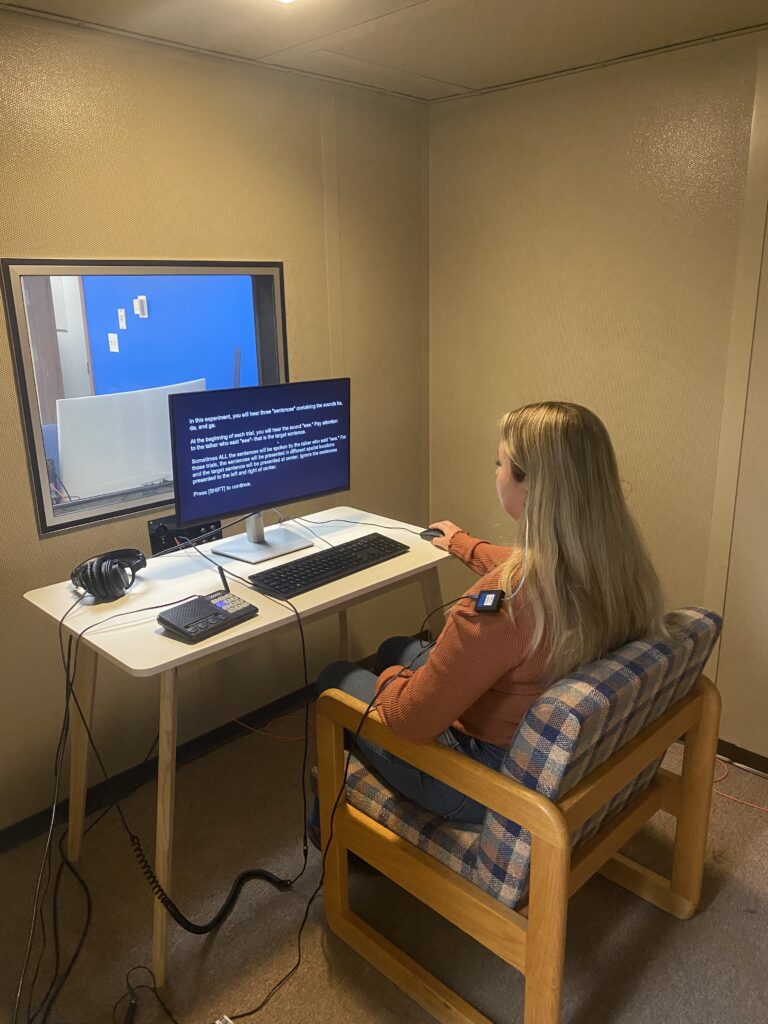
Interested in participating in this study? Please see For Participants for more information.
Electroencephalography (EEG)
EEG involves placing a cap with electrodes on an individual’s head and recording their brain responses while they listen to sounds and/or complete a task. These studies tell us how the brain is processing sound, and how brain activity relates to the ability to hear in different listening environments.
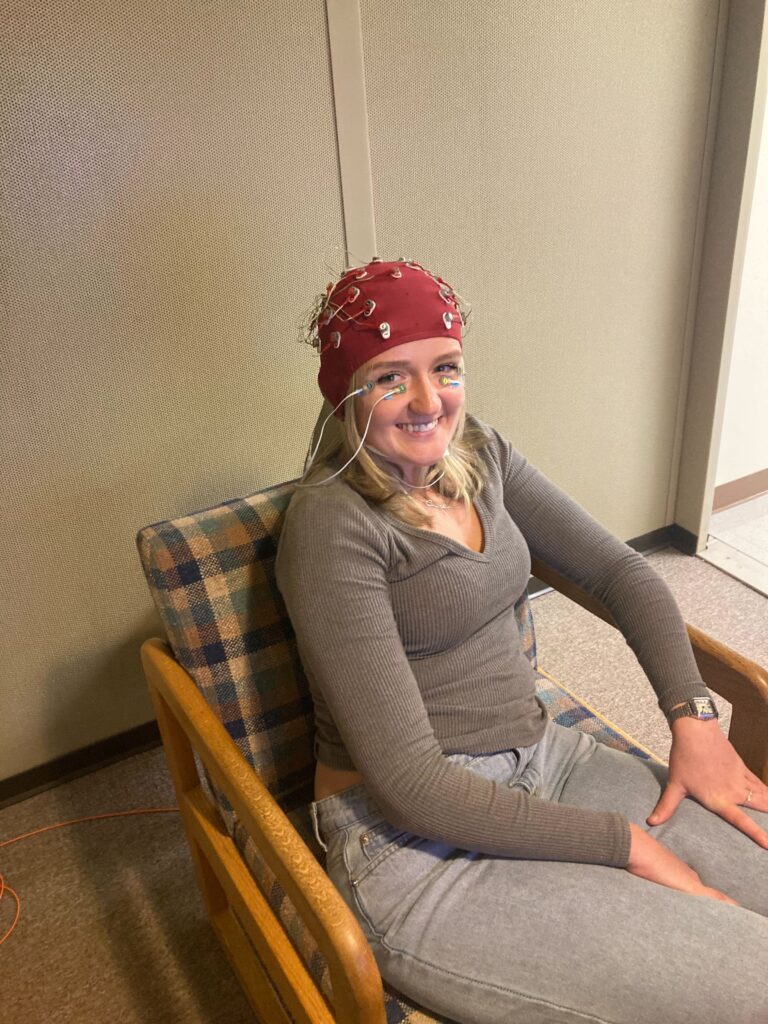
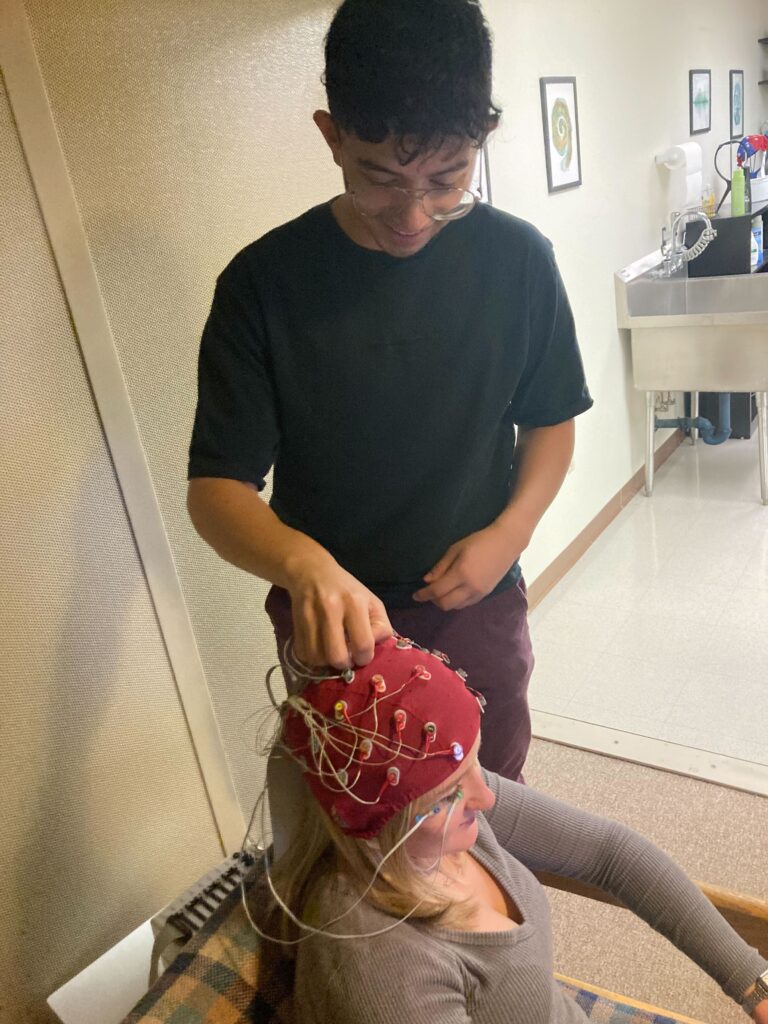
Interested in participating in this study? Please see For Participants for more information.
Audiometric Assessments
Many of our studies involve measurements of how the auditory system is functioning, from the ear to the brain. We can compare these measurements to an individual’s performance on different types of listening tasks to determine the relationship between auditory processing and perception. We are also interested in how the normal changes in the auditory system that occur during aging, as measured with our audiometric assessments, affect one’s ability to perceive different types of sounds.
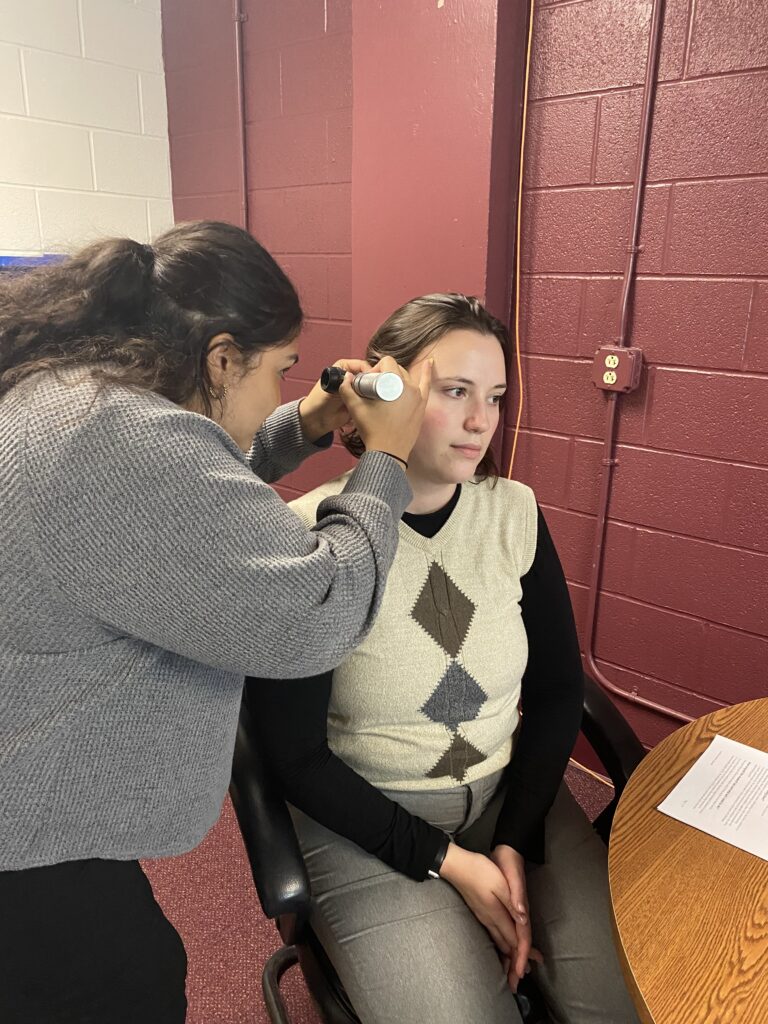
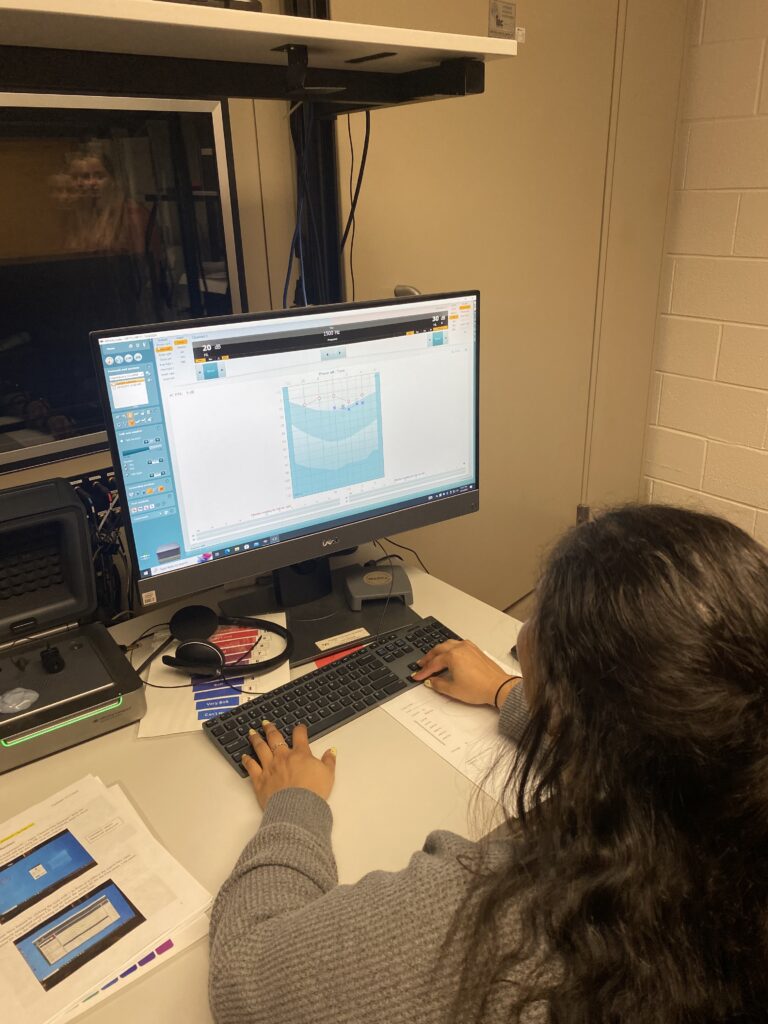
Interested in participating in this study? Please see For Participants for more information.
Collaborations
We are fortunate to collaborate on projects with researchers who have different, but complementary expertise.
We are developing assessments of speech perception that are sensitive to auditory neural function in collaboration with Dr. Melissa Polonenko from the University of Minnesota: https://cla.umn.edu/about/directory/profile/mpolonen
We are investigating factors that contribute to sound sensitivity in young adults in collaboration with Dr. Kelly Jahn from the University of Texas Dallas: https://profiles.utdallas.edu/kelly.jahn
